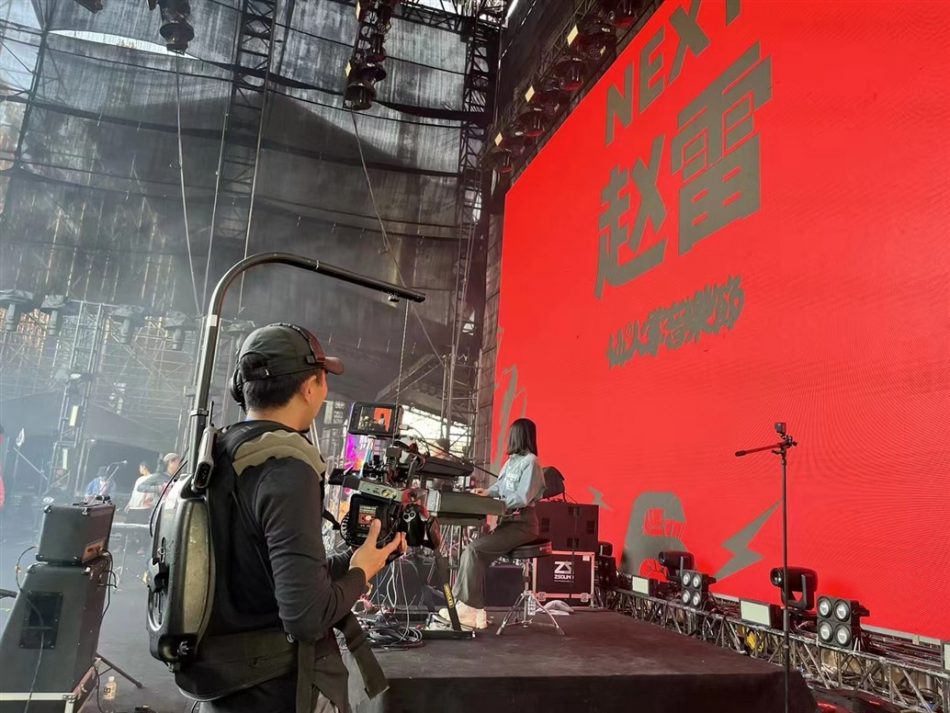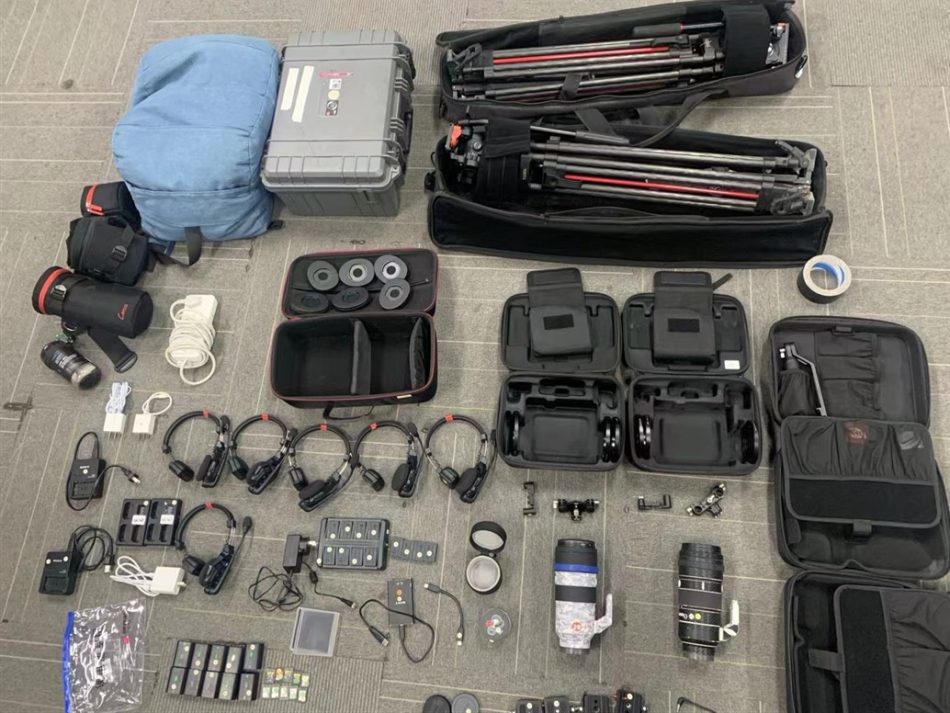Chengdu, the capital of Sichuan Province, is famous for its laid-back lifestyle, historic landmarks, and spicy cuisine. As one of China’s most culturally vibrant cities, it offers a unique backdrop for film, television, commercial, and documentary projects. This filming in Chengdu guide covers essential production resources, permits, climate considerations, and cultural tips to help ensure your shoot runs smoothly.

Production Resources in Chengdu
Production infrastructure in Chengdu is moderate. You can find experienced:
- Directors
- Cameramen/Videographers/Camera Crews
- Producers
- Bilingual Cameramen/DPs
- Fixers familiar with the region
Makeup/hair artists, location managers, and production assistants are also available locally. However, for specialized crew roles such as sound engineers, assistant directors, prop specialists, animal handlers, or large-scale grip teams, it’s often better to bring them from Beijing, Shanghai, or Shenzhen.
📌 Tip: Crew workdays typically run 10 hours (excluding meal breaks). Overtime must be negotiated in advance.
Film crew and production insurance can be arranged upon request, but coverage terms should be confirmed before arrival.

Visa Requirements
For professional filming in Chengdu, a business (M) visa or work (Z) visa is recommended, as you will be engaged in work.
While some small-scale shoots may get by on a tourist visa, it is not ideal and may result in complications at customs or during permit checks.
Bringing Equipment – Carnet/ATA Carnet
You can import professional camera gear into China using an ATA Carnet, but note:
- Chinese customs officials may still request inspection or additional documentation
- Always have a detailed gear list with serial numbers and photographs
- Allow extra time at airports for customs clearance
Equipment Rental in Chengdu
Rental options in Chengdu include high-end brands like ARRI, RED, Sony (FX, FS series), Canon Cinema EOS, and lenses such as Cooke, Angénieux, ARRI Master Primes, Zeiss CP.3, and Sony G Master.
However:
- The range is limited compared to Beijing or Shanghai
- Specialized lenses (anamorphic, vintage glass, extreme telephoto) should be rented in advance from major hubs
- Grip and lighting are available but selection may be smaller for large-scale productions
📌 Tip: If you have specific technical requirements (e.g., 12K RAW workflow, underwater housings, motion control rigs), arrange rentals in Beijing or Shanghai and ship them in.

Post-Production
Chengdu has competent but limited post-production facilities.
You can find online/offline editing, color grading, and sound mixing locally, but for VFX-heavy or high-end grading workflows, consider doing post in Beijing, Shanghai, or overseas.
Location Permits in Chengdu
- Government-owned locations (temples, parks, public plazas) require official permits, which can take 7–15 working days to process.
- Privately-owned venues (restaurants, hotels, shops) are easier to arrange, usually requiring only owner approval and location fees.
- Public street filming without a permit is not legally allowed, but small-scale shooting with DSLRs or phones is often tolerated for personal or vlog-style projects.
Popular Filming Locations
- Kuanzhai Alley (Wide & Narrow Alley) – Historical architecture and teahouse culture
- Chengdu Research Base of Giant Panda Breeding – Famous panda conservation center (special permits required)
- Wuhou Memorial Temple – Rich cultural and historical atmosphere
- Jinli Ancient Street – Vibrant night markets and traditional crafts
- Qingcheng Mountain – Taoist heritage and lush scenery
Climate, Weather & Air Quality
Chengdu has a humid subtropical climate:
- Summer (June–August): Hot, humid, frequent rainstorms
- Autumn (Sept–Nov): Mild, comfortable shooting weather
- Winter (Dec–Feb): Damp and chilly, little snow but frequent fog
- Spring (Mar–May): Pleasant temperatures, but can be rainy
Air pollution can spike, especially in winter. Check AQI (Air Quality Index) daily and have ND filters for hazy light conditions.
Drone Filming Restrictions
- Drones are banned in the city center
- A CAA-approved pilot license is required for commercial drone flights
- Many scenic spots are designated no-fly zones
- Apply for permits well in advance if aerial footage is essential
Currency & Payments
Only RMB is accepted in Chengdu.
Digital payment apps like Alipay and WeChat Pay are the norm. If you don’t have a Chinese bank account, you can link these apps to a foreign bank card, but set it up before your trip.
Hotels & Accommodation
- Mid-range hotels: USD $100–150 per night
- Luxury hotels: USD $180–250+ per night
- Budget options: USD $50–80 per night
Food Safety & Health Precautions
Chengdu is famous for spicy Sichuan cuisine, especially hotpot loaded with chili peppers and Sichuan peppercorns (mala).
- If you are not accustomed to spicy food, request dishes “bu la” (not spicy).
- Avoid street food unless you’re confident about hygiene standards.
- Hotpot broth can be very oily and salty – pace yourself to avoid digestive issues.
- Drink only bottled or boiled water.
- Be cautious with raw or undercooked meats in hotpot—cook thoroughly before eating.
📌 Pro Tip for Crews: Have bland, non-spicy catering options on standby for cast or crew who can’t tolerate Sichuan heat.
Transportation for Production
Chengdu is served by:
- Chengdu Shuangliu International Airport (CTU) – Main hub for domestic & international flights
- Multiple high-speed train stations (Chengdu East, Chengdu South)
For filming logistics:
- 5-seat van with driver: USD $150–200/day
- Production trucks/lorries: Price varies with size & load
- Ride-hailing apps Didi or Meituan are ideal for small crews
✅ Summary Advice for Filming in Chengdu:
- Secure permits early, especially for heritage sites
- Bring specialized crew/equipment from larger cities if needed
- Prepare for humid weather and possible air pollution delays
- Manage catering to accommodate both spicy and mild food preferences
- Respect local culture, especially in temples and panda facilities
📧 Production Support Contact: [email protected]e of the spiciest places in China. However, there are plenty of food options available that are not spicy.
Transportation
Chengdu is served by one major airport, Chengdu Shuangliu International Airport. The city also has several train stations, including Chengdu Railway Station and Chengdu East Railway Station. For production purposes, it’s common to hire vans or lorries, with a 5-seat car/van and driver costing 150 USD to 200 USD per day. Smaller productions can use Didi or Meituan, the Chinese equivalents of Uber and Lyft.



